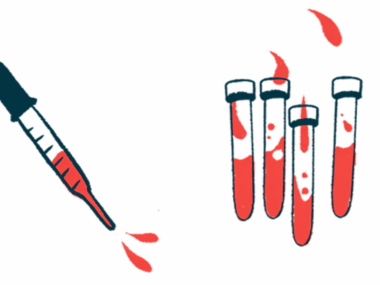Expanding Alhemo to hemophilia without inhibitors recommended
CHMP opinion will be reviewed by European Commission, which has final say
Written by |

A committee of the European Medicines Agency (EMA) has recommended that the approval of Alhemo (concizumab-mtci) be expanded to cover its use to reduce the risk of bleeding in people with severe hemophilia A and moderate or severe hemophilia B who don’t have inhibitors.
The recommendation from the Committee for Medicinal Products for Human Use (CHMP) will now be reviewed by the European Commission, which has final say over drug approvals in the EU. While the commission isn’t required to abide by CHMP’s recommendations, it almost always does and Alhemo’s developer Novo Nordisk said it expects the commission to authorize the expansion in about two months.
“If approved by the European Commission, this label update would extend Alhemo’s convenient once-daily, under-the-skin administration to patients living with hemophilia without inhibitors, providing an efficacious prophylactic [preventive] choice,” Martin Holst Lange, MD, PhD, executive vice president and head of development at Novo Nordisk, said in a company press release.
Hemophilia A and B are bleeding disorders characterized by a lack of functional clotting factor proteins — factor VIII in hemophilia A and factor IX in hemophilia B.
Factor replacement therapies are standard hemophilia treatments where a working version of the missing or dysfunctional clotting protein is administered to restore blood clotting. Some patients develop inhibitors, or neutralizing antibodies against the delivered clotting factors, however, which reduce replacement therapies’ effectiveness.
How does Alhemo work in hemophilia?
Alhemo is an antibody-based therapy that’s designed to promote clotting by blocking the activity of tissue factor pathway inhibitor (TFPI), a protein that normally acts to prevent unneeded clotting.
It’s approved in the European Union, along with the U.S. and other countries, as a prophylactic treatment for patients with hemophilia A and B, ages 12 and older, who have inhibitors. Alhemo is only approved for patients without inhibitors in Australia and Japan, according to Novo Nordisk.
CHMP’s recommendation to extend Alhemo’s use is based on data from a Phase 3 clinical trial called explorer8 (NCT04082429) that enrolled 148 males with severe hemophilia A or moderate or severe hemophilia B, ages 12 and older, without inhibitors.
Data from the study showed that, relative to rates seen in those who didn’t receive prophylactic treatment, Alhemo reduced the annualized bleeding rate for spontaneous and traumatic bleeding episodes by a mean of 86% for people with hemophilia A and by 79% with hemophilia B.
Patients given Alhemo also reported improvements in life quality and reductions in treatment burden.
“Each person living with hemophilia has individual and evolving needs,” Lange said. “With its user-friendly, prefilled, portable pen, we believe that Alhemo has the potential to offer even more patients an individualized and flexible treatment.”



